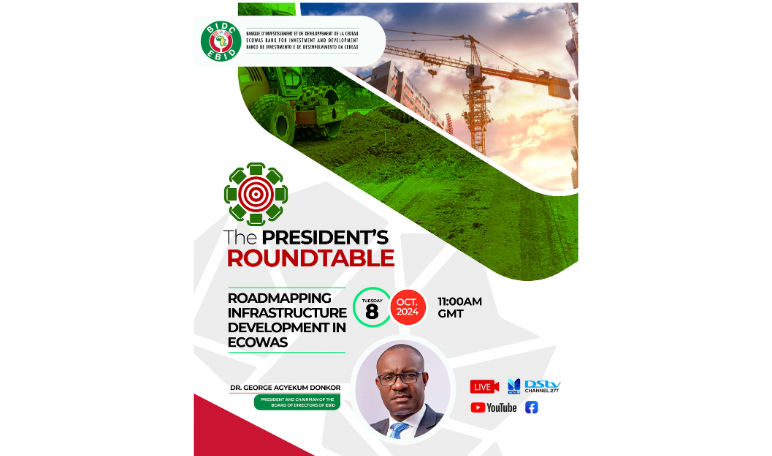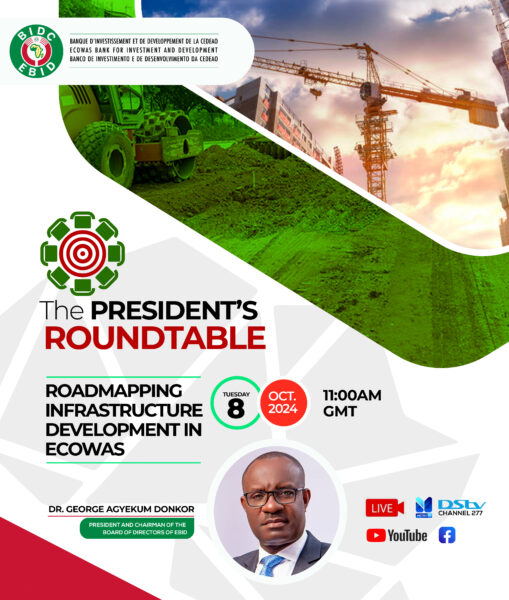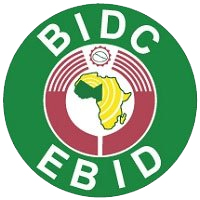
President’s Roundtable: Road-mapping Infrastructure Development in ECOWAS
Introduction
According to the World Bank, infrastructure deficit in the African continent constrains economic growth by 2 per cent every year and cuts productivity by as much as 40 per cent.
With a growing population, which has surpassed 400 million and a need for modernisation, the ECOWAS sub-region has immense potential for infrastructure development. There are plenty of opportunities for investment and growth in sectors such as transportation, telecommunications, and energy. Infrastructure development is crucial for socio-economic advancement and plays an important role in improving the standard of living across the sub- region. The transition from an “ECOWAS of States” to an “ECOWAS of peoples” relies heavily on the development of robust infrastructure to foster economic growth, facilitate the free movement of goods and people, and enhance economic integration. However, the ECOWAS sub-region has suffered from underdeveloped physical infrastructure, hindering intra-regional trade, and constraining economic growth.
Importance of Infrastructure Development
Infrastructure, spanning electricity, telecommunications, and transport networks, acts as a catalyst for economic growth. For instance, studies indicate that every 1 per cent increase in electricity provision can lead to a 2 per cent to 4 per cent rise in gross domestic product, showcasing the significant multiplier effect of infrastructure development. Improved infrastructure, such as well-maintained roads, contributes to mitigating post-harvest losses and enhancing overall economic productivity.
Infrastructure in West Africa is varied, with a mix of modern and traditional systems. The region has a vast network of roads, railways, ports, and airports that connect it to the rest of the world although many of these structures are outdated and in need of modernisation. As West Africa experiences consistent economic growth, the need for supportive infrastructure becomes increasingly evident for a continued socio-economic advancement.
Challenges in Infrastructure Development
Despite its critical role in economic growth and improving living standards, the ECOWAS sub- region faces substantial infrastructure deficits. There currently exist substantial deficits in sectors such as transport, power, water, and healthcare both within individual countries and across the region. For instance, many countries struggle with inadequate electricity coverage, with only Ghana and Côte d’Ivoire exceeding 75% coverage. Road networks are often in disrepair, hindering efficient transportation and impeding intra-regional trade, which remains below 12 per cent.
Rail infrastructure remains underdeveloped, despite its potential to alleviate pressure on road networks. While telecommunication infrastructure has seen advancements, challenges persist in improving network quality and internet penetration. There are also major deficits in infrastructure investment within the sub-region. For instance, Nigeria has an infrastructure investment gap of US$221 billion, equivalent to 51.2% of the country’s GDP, while the infrastructure investment gap in Côte d’Ivoire is US$14 billion, equivalent to 22.8% of its GDP.
Despite these challenges, there are numerous opportunities for investment and growth in West Africa’s infrastructure sector. Effective collaboration and innovative financing are essential for addressing the infrastructure deficit in the ECOWAS sub-region.
Thematic Topic
The thematic topic for the 2024 edition of the High-level Roundtable is “Road-mapping Infrastructure Development in ECOWAS”, which will explore collaborative efforts to address infrastructure challenges in the ECOWAS sub-region and catalyse actionable solutions that will propel the region toward a more prosperous future.
Date and Location
The programme will be held on 8th October 2024 at Metro TV Studios in Accra-Ghana.

Dialogue Format
The Roundtable Discussion will take place in a television studio that is fully equipped for a televised event that will be broadcasted live on a TV channel and diverse digital platforms such as YouTube and Facebook. The dialogue will take the form of a round table based on discussions between experts, including the President of EBID and other leaders from the development finance sector and the private sector. The speakers will shed light (key data, information, and perspectives) on infrastructure challenges and opportunities for economic growth. The moderator, an experienced journalist, will ask the panellists a series of questions on the topic.
Discourse Programme
1. Modernising physical infrastructure systems: identify and explore innovative and collective efforts to modernise infrastructure systems, covering energy, transport, and telecommunication.
2. Facilitating trade and the movement of people: how to develop the infrastructure sector and build a sustainable foundation in ECOWAS for the successful establishment of the African Continental Free Trade Area (AfCFTA).
3. Poolingresourcestowardthedevelopmentofsustainableinfrastructure:identify and explore innovative financing strategies and models to mobilise funds for infrastructure development.
Potential Questions
Modernising physical infrastructure systems
1. How is your institution/company effectively addressing the infrastructure deficit and modernising needs of the sector’s physical systems in ECOWAS countries?
2. What are the challenges and opportunities for developing infrastructure in ECOWAS?
Facilitating trade and the movement of people
1. The infrastructure deficit is an impediment to doing business, mobilising capital, people, and goods on the continent as a result of the tedious procedures associated with administrative processes, high costs, and time. How can we support ECOWAS governments to tackle the infrastructure gap so that it could be the catalyst for AfCFTA?
Pooling resources toward the development of sustainable infrastructure
- The private sector is an increasingly important source of infrastructure finance for ECOWAS, but at present contributes only 5 per cent of infrastructure financing within the region. How can we incentivise private capital investment in key infrastructure projects?
- HowcanweleveragePublic-PrivatePartnerships(PPPs)tobridgeinfrastructuregaps and deliver sustainable development projects?



